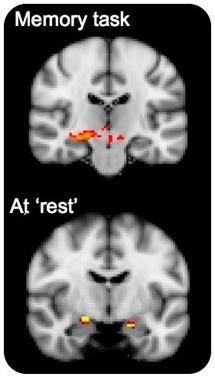
© istockphoto

© istockphoto
Exerting self-control is exhausting. In fact, using self-control in one situation impairs our ability to use self-control in subsequent, even unrelated, situations. What about thinking of other people exerting self-control? Earlier research has shown that imagining actions can cause the same reactions as if we were actually performing them (e.g., simulating eating a disgusting food results in a revolting face, even if no food has been eaten) and psychologists Joshua M. Ackerman and John A. Bargh from Yale University, along with Noah J. Goldstein and Jenessa R. Shapiro from the University of California, Los Angeles explored what affect thinking about other people’s self-control has on our own thoughts and behavior. [continue reading…]
A group of German investigators has published a randomized controlled trial on how to overcome constant worries in the current issue of Psychotherapy and Psychosomatics.
Worry exposure (WE) is a core element of cognitive-behavioral treatment for generalized anxiety disorder (GAD). Its efficacy as a stand-alone treatment method (without further cognitive-behavioral therapy interventions) has never been tested. This study examined whether WE alone is as efficacious as the empirically supported stand-alone treatment for GAD, applied relaxation (AR). [continue reading…]

Brain maps show increased brain activity for carriers of the gene variant relative to non-carriers while at 'rest' and while conducting a memory-related task.
Young adults with a genetic variant that raises their risk of developing Alzheimer’s disease show changes in their brain activity decades before any symptoms might arise, according to a new brain imaging study by scientists from the University of Oxford and Imperial College London. The results may support the idea that the brain’s memory function may gradually wear itself out in those who go on to develop Alzheimer’s.
The research, published today in the journal Proceedings of the National Academy of Sciences, provides clues as to why certain people develop Alzheimer’s disease and it may be a step towards a diagnostic test that identifies individuals at risk. The degenerative condition is the most common cause of dementia and it affects around 417,000 people in the UK. [continue reading…]